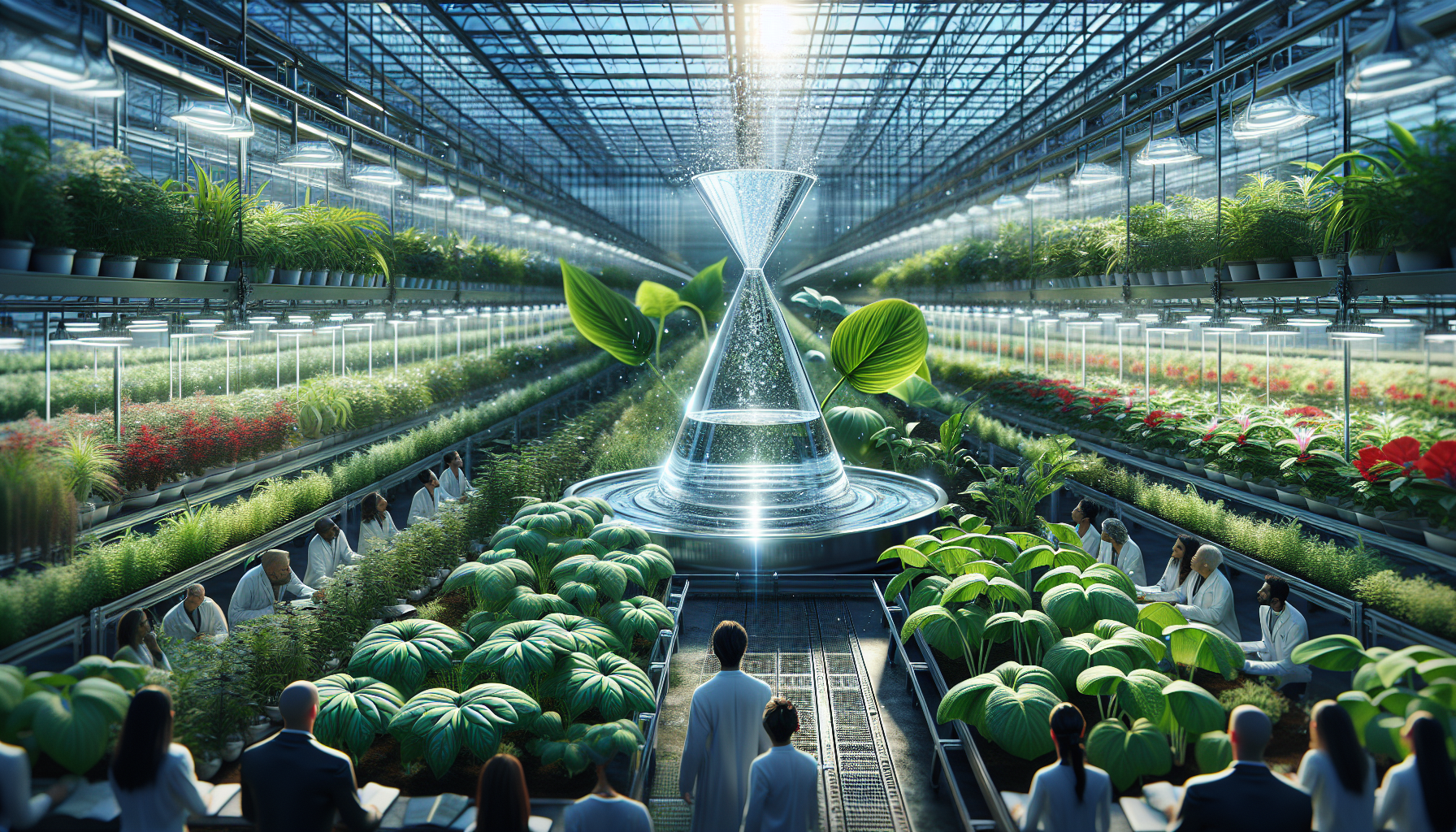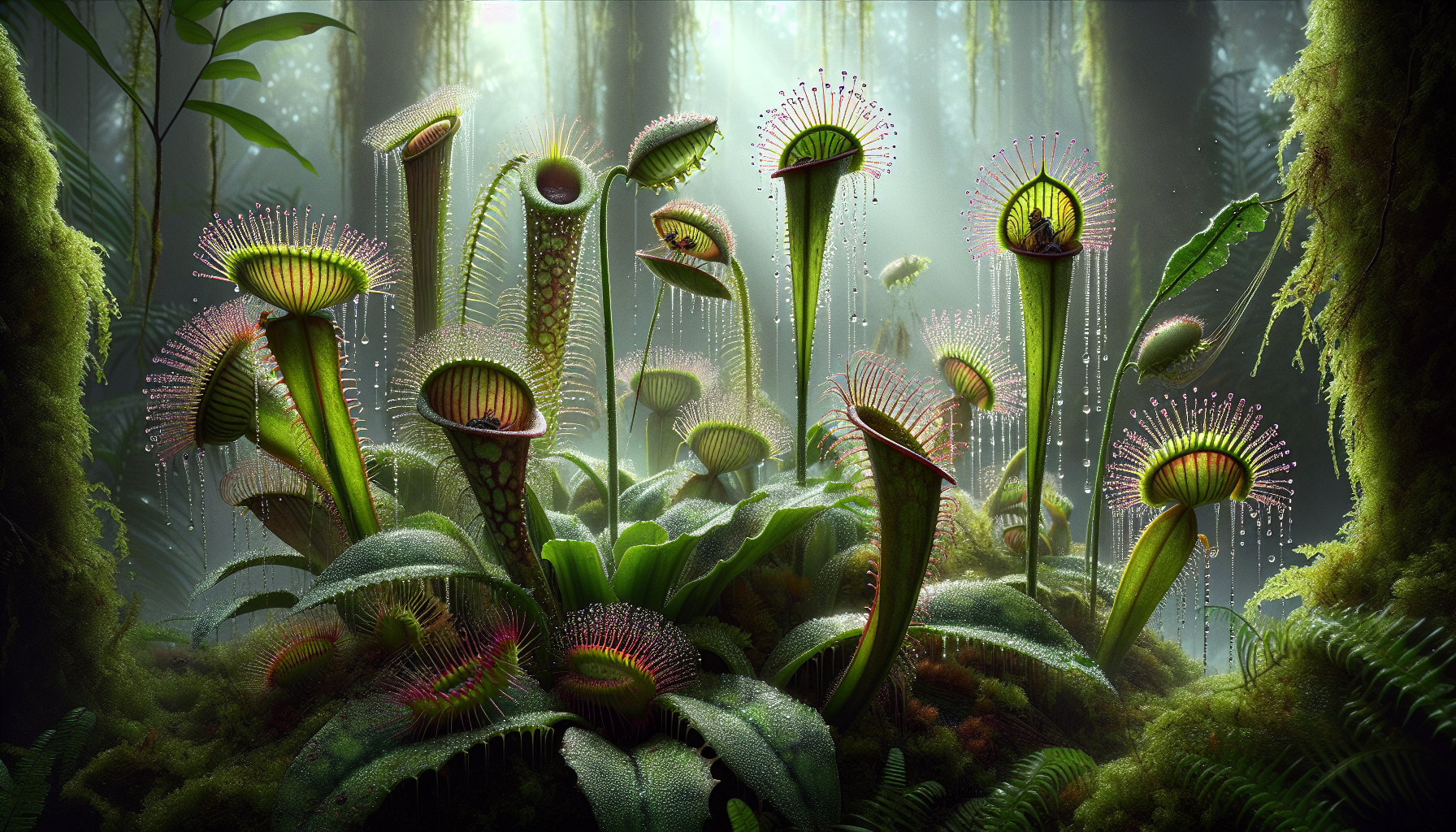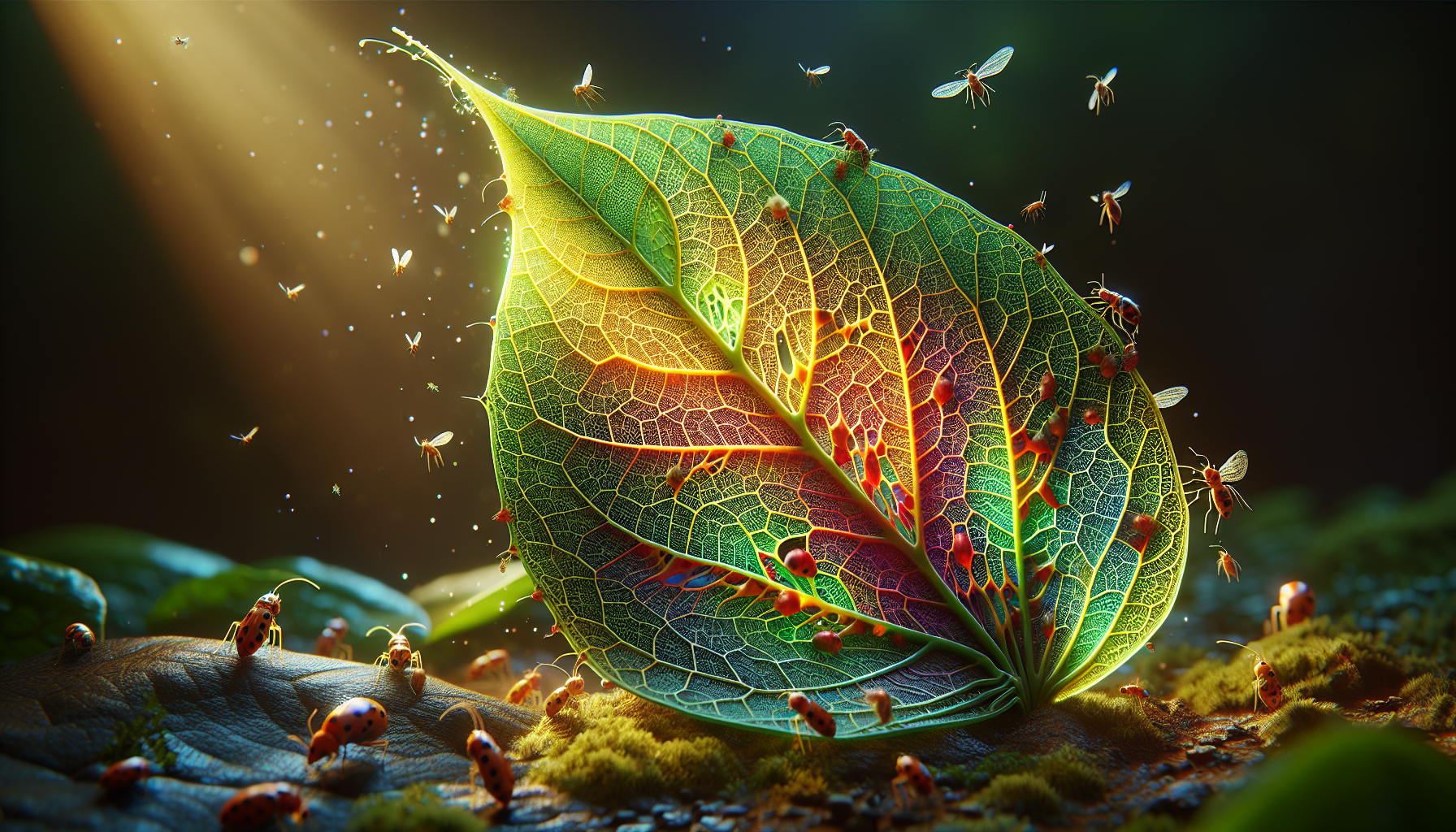In the ever-evolving realm of agriculture and horticulture, the pursuit of optimal growth conditions is a relentless journey. Farmers, gardeners, and botanists alike are in constant search of innovative methods to enhance crop yield, improve plant health, and ensure sustainability. In this quest for perfection, one unlikely hero emerges: distilled water. At first glance, distilled water might seem like a simple, unassuming player in the vast orchestra of cultivation. However, this purified form of H2O holds untapped potential, promising to revolutionize the way we nurture our plants. 🌱
Water is the lifeblood of all plant life, acting as a conduit for nutrients, a medium for biochemical reactions, and a critical factor in photosynthesis. Yet, not all water is created equal. Tap water, often laden with minerals, chemicals, and impurities, can sometimes do more harm than good, leading to nutrient imbalances, soil degradation, and plant stress. Enter distilled water—a pure, uncontaminated alternative that strips away the unwanted baggage, offering a clean slate for cultivation. By eliminating impurities, distilled water allows for precise control over nutrient intake, paving the way for healthier, more robust plants.
In this comprehensive exploration, we will delve into the science behind distilled water and its remarkable impact on plant growth. We will begin by understanding the process of distillation and how it creates a uniquely pure form of water. From there, we’ll examine the specific benefits of using distilled water in various cultivation settings, from small-scale home gardens to expansive agricultural operations. We’ll also discuss the potential challenges and considerations, ensuring that you have a well-rounded understanding of both the promises and pitfalls of this approach.
As we journey through the intricate relationship between distilled water and plant cultivation, we will uncover real-world case studies and testimonials from experts who have successfully harnessed this resource. We’ll explore how distilled water can be integrated into existing practices, and offer practical tips for those eager to experiment with this method. By the end of this article, you’ll be equipped with the knowledge to make informed decisions about incorporating distilled water into your cultivation efforts, potentially transforming your results and elevating your growth game to new heights. Let’s embark on this journey to discover how pure growth can indeed be achieved, one drop at a time. 💧
The Science Behind Distilled Water
Distilled water is often seen as a simple, pure form of water, devoid of impurities and minerals. This purity can be a double-edged sword in the world of cultivation, offering unique benefits while requiring careful handling. To understand why distilled water is valuable in cultivation, it is crucial to comprehend its fundamental characteristics and the process by which it is produced.
Distillation is a purification process that involves boiling water to create steam, which is then condensed back into a liquid form. This process effectively removes impurities and dissolved solids, including salts and minerals, resulting in water that is 99.9% pure. The absence of minerals like calcium and magnesium makes distilled water an ideal medium for certain cultivation practices where mineral content might otherwise interfere with growth.
The use of distilled water in cultivation is not new, but recent advancements have led to its increased popularity. In hydroponic systems, for example, the purity of distilled water ensures that nutrient solutions are free from any unwanted contaminants. This allows cultivators to have precise control over the nutrient profile provided to the plants. For those interested in organic and sustainable farming practices, distilled water offers a reliable way to minimize chemical inputs and maintain an eco-friendly growing environment.
Comparing Water Types
| Water Type | Advantages | Disadvantages |
|---|---|---|
| Distilled Water | Pure, free of minerals and contaminants, excellent for precise nutrient control. | Requires additional nutrients, can be expensive and energy-intensive to produce. |
| Tap Water | Readily available, contains some beneficial minerals. | May contain chlorine, chloramines, and other impurities. |
| Filtered Water | Reduces chlorine and some impurities, retains some minerals. | Quality varies based on filter type and condition. |
| Rainwater | Natural, eco-friendly, free of chemicals used in municipal treatment. | Can be acidic, may contain environmental pollutants. |
Each water type has its place in cultivation, and the choice depends on various factors, including cost, availability, and the specific requirements of the plants being grown. Distilled water stands out for its purity, making it particularly suitable for hydroponic and precision farming systems.
Benefits of Using Distilled Water in Cultivation
There are several benefits to using distilled water in cultivation that go beyond its basic purity. One of the most significant advantages is the ability to control the nutrient composition provided to plants. When using distilled water, cultivators start with a blank slate, allowing them to tailor the nutrient solution to the specific needs of the plants. This precision is particularly valuable in hydroponic systems where nutrient uptake is directly influenced by water quality.
Another advantage of distilled water is its role in preventing mineral buildup in irrigation systems. Over time, minerals in water can accumulate in pipes and emitters, leading to blockages and reduced efficiency. By using distilled water, cultivators can significantly reduce the risk of such issues, ensuring that their irrigation systems remain in optimal working condition.
Distilled water also minimizes the risk of introducing harmful pathogens and contaminants into the growing environment. This is especially important in closed systems where water is recirculated, as any contaminants present in the water can quickly spread throughout the system. By using distilled water, cultivators can reduce the risk of disease and ensure a healthier growing environment for their plants.
Maximizing Growth Potential
- Enhanced nutrient uptake
- Reduced risk of plant stress
- Improved overall plant health
For those looking to maximize their cultivation results, distilled water offers a reliable and effective solution. The ability to precisely control nutrient levels and reduce the risk of contamination can lead to significant improvements in both yield and quality.
Challenges and Considerations
While distilled water offers many benefits, there are also challenges and considerations to keep in mind. One of the primary challenges is the cost and energy associated with producing distilled water. Distillation is an energy-intensive process, and the equipment required can be expensive to purchase and maintain. For large-scale operations, these costs can add up quickly, making distilled water less economical than other options.
Another consideration is the need to supplement distilled water with additional nutrients. Because it lacks minerals, distilled water does not provide the necessary nutrients for plant growth on its own. Cultivators must carefully monitor and adjust nutrient solutions to ensure that plants receive the right balance of nutrients. This requires a thorough understanding of plant nutrition and the specific needs of the crops being grown.
Finally, there is the consideration of environmental impact. While distilled water is beneficial for plant growth, the energy required to produce it can have a negative impact on the environment. Cultivators must weigh the benefits of using distilled water against the environmental costs and consider alternative methods of purification that may be more sustainable.
Balancing Cost and Benefit
- Cost of production
- Need for nutrient supplementation
- Environmental impact
By carefully considering these factors, cultivators can make informed decisions about whether distilled water is the right choice for their specific cultivation needs.
Conclusion
In conclusion, the exploration of using distilled water for cultivation has shed light on its potential as a transformative element in agricultural practices. Throughout this article, we have delved into the distinctive properties of distilled water, highlighting its purity and neutrality as pivotal factors that contribute to the enhancement of plant growth and development.
Distilled water, devoid of impurities, offers a controlled environment for plants, ensuring that they receive only what is necessary for their nourishment. This purity helps in avoiding the introduction of harmful elements that can be present in tap or untreated water, thereby fostering a healthier growing environment. The neutrality of distilled water also ensures that the pH levels are maintained at an optimal range, which is crucial for the absorption of nutrients by plants.
Furthermore, distilled water’s role in preventing mineral buildup in soil and plant systems was examined, emphasizing how this can lead to more robust and vibrant plant life. The absence of minerals and contaminants allows for a more precise control over the nutrients that plants receive, thereby optimizing their growth potential. This aspect is particularly beneficial in hydroponic systems, where water quality is paramount to success.
The article also touched upon the economic and environmental implications of using distilled water in agriculture. By promoting healthier plant growth and potentially reducing the need for chemical interventions, distilled water can contribute to more sustainable farming practices. This aligns with the growing global emphasis on sustainable agriculture and the need to reduce environmental impacts.
It is essential to recognize the broader implications of integrating distilled water into cultivation practices. As the demand for sustainable and efficient farming continues to rise, distilled water offers a viable solution to meet these needs. Its ability to enhance plant health and productivity while minimizing environmental harm positions it as a key component in the future of agriculture.
In light of these findings, it is crucial for cultivators, researchers, and stakeholders in the agricultural sector to consider the integration of distilled water into their practices. By doing so, they can harness its full potential and contribute to the development of a more sustainable and productive agricultural system. 🌱
We encourage readers to reflect on the information presented and consider how they might apply these insights in their own cultivation endeavors. Whether you are a home gardener or a large-scale farmer, the benefits of using distilled water can be significant.
Moreover, we invite you to engage in the conversation by sharing your thoughts and experiences with distilled water in cultivation. How has it impacted your results? What challenges have you faced, and how have you overcome them? Your insights can contribute to a richer understanding of this topic and help others in their pursuit of optimal cultivation results.
Please feel free to share this article with fellow enthusiasts and practitioners who might benefit from understanding the power of distilled water in agriculture. By spreading knowledge and fostering dialogue, we can collectively work towards a more sustainable and efficient future in farming.
For further reading and exploration, we recommend the following resources:
– [Link to an active research article on the benefits of distilled water in hydroponics]
– [Link to an active study on sustainable agriculture practices]
Thank you for joining us on this journey of discovery. We hope you are inspired to explore the possibilities that distilled water can bring to your cultivation practices. Let’s continue to innovate and cultivate with intention, creating a greener, healthier world for future generations. 🌍

Toni Santos is a visual storyteller and botanical artisan whose creations explore the wild elegance of carnivorous and exotic plants. With a deep reverence for nature’s most mysterious flora, Toni captures the untamed beauty of insect-eating mechanisms, alien-like blooms, and resilient life thriving in extreme environments.
Rooted in a lifelong fascination with the strange intelligence of plants, his work blends science, symbolism, and storytelling. From the snap of a Venus flytrap to the labyrinthine curves of a Nepenthes pitcher, each piece Toni creates reveals a deeper narrative — one of survival, adaptation, and the subtle power of nature’s most unexpected designs.
With a background in visual design and handcrafted artistry, Toni merges technique with intention, crafting illustrations, collections, and visual studies that not only depict these botanical wonders — but evoke their hidden magic. His inspiration often comes from ancient lore, natural history, and the eerie elegance of ecosystems where these plants thrive.
As the creative force behind Vizovex, Toni shares this botanical fascination with the world, offering curated artwork, stories, and pieces that help others reconnect with nature’s wilder, more enigmatic side.
His work is a tribute to:
The fierce beauty of carnivorous plants
The visual language of adaptation and survival
The mysteries of exotic flora in forgotten habitats
Whether you’re a plant enthusiast, a science lover, or someone drawn to the strange and beautiful, Toni welcomes you into a world where every leaf hides a secret — one trap, one tendril, one story at a time.





